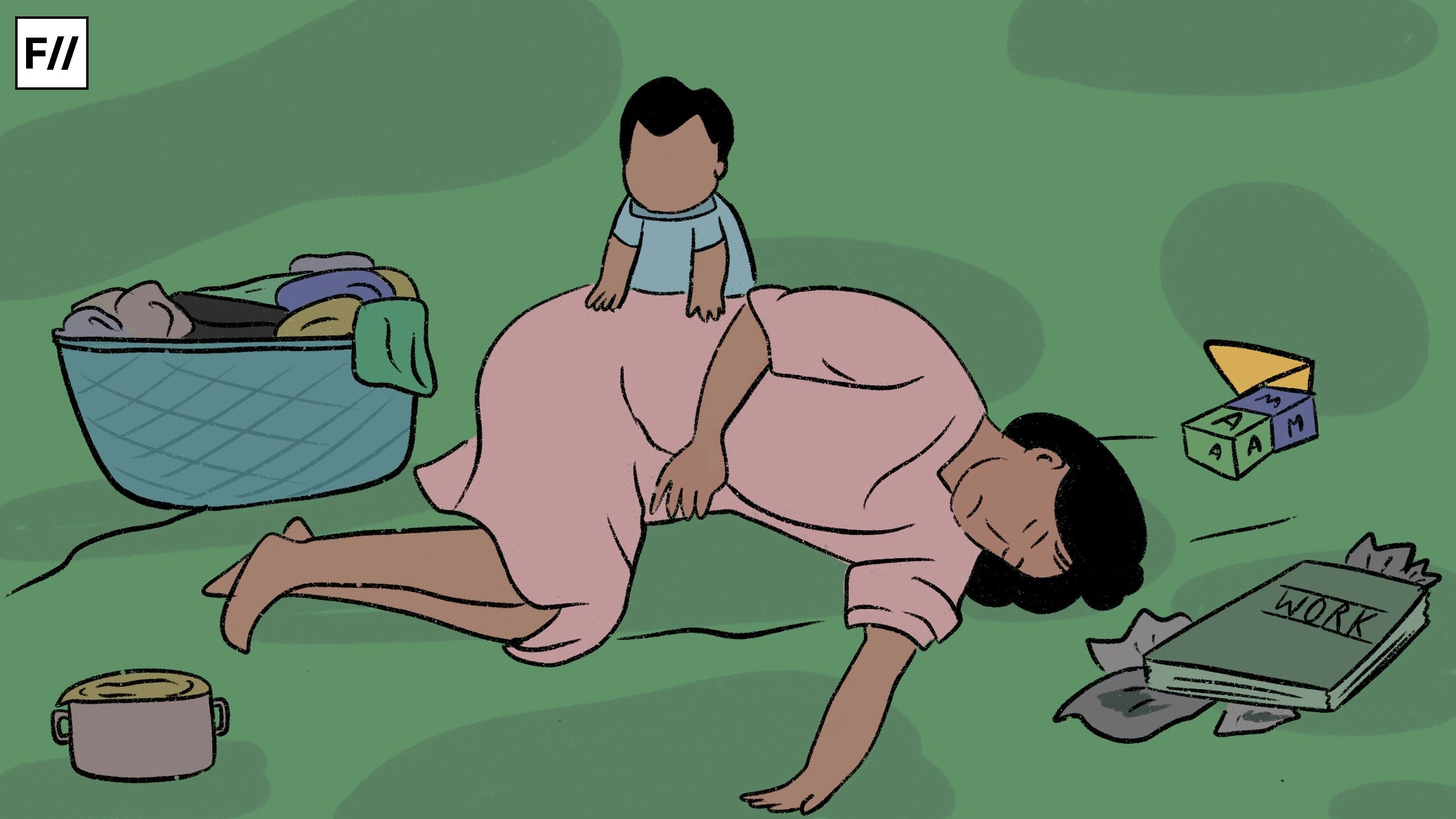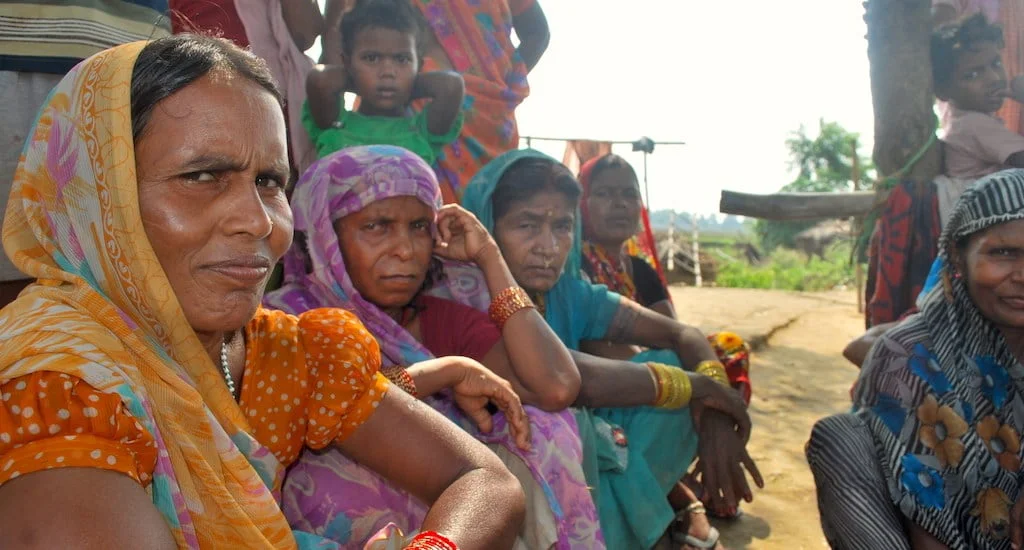According to the World Health Organisation (WHO), mental health is “a state of well-being that enables an individual to cope with the stress of life, realise their abilities, learn well and work well, and contribute to their community.” It is clear from this definition that mental health is not just the absence of illness; it also encompasses autonomy over one’s life, resilience in overcoming difficulties, and emotional balance in navigating everyday challenges.
But for many women in India, mainly during pregnancy and early motherhood, this ideal remains far out of reach. The demands, whether social or emotional, imposed on new mothers often make it impossible to “cope with the normal stresses of life and utilise their potential in the community.” During and after pregnancy, many women quietly battle anxiety or depression; in fact, what makes it worse is how no one really talks about it.
In Indian society, motherhood is often romanticised and viewed as the ultimate expression of womanhood. We have observed that new and expecting mothers are publicly honoured with blessings, rituals, and gifts; however, this cultural celebration conceals a deeper crisis.
How common is it, really?
Studies show that around 20 to 22% of new mothers in India go through postpartum depression (PPD). The exact numbers vary slightly, but this provides a relatively clear picture of how common it is. Even antenatal anxiety and depression are also common but rarely discussed. The Indian Journal of Medical Research published a 2023 review examining studies conducted in India over the past two decades, from 2000 to 2022. It shows that antenatal depression occurs between 3.8% to 65% and antenatal anxiety ranges from 13% to 55%, which shows how common these struggles are, even though they are overlooked.
Still, most women in India, even with severe symptoms, are never screened or offered any support.
“After my baby was born, I used to feel exhausted,” said Kavita, a teacher by profession. “But I thought that’s how it is for everyone, so I kept quiet. Even when I wanted to share about how I actually feel, I knew people would say, ‘it’s your baby, you have to manage.’ That’s why I never shared with anyone.”
Mental health in India is often treated as a luxury, and the health of women, even maternal health, is even more so. But this isn’t something that can just be ignored. If left untreated, this doesn’t just impact the mother but also affects the mother’s ability to bond with her baby and even makes breastfeeding harder.
The Gendered Weight of Expectations
The mental health of new and expecting mothers is not just a medical condition but a deeply gendered issue.
Piya (name changed) shared, “Pregnancy was hard for me. Everyone around me had some advice on what to eat, what not to eat, and what to avoid. I couldn’t eat the things I craved for, and I was, in fact, resting less than before. Everyone kept saying doing more work would be good for me and my baby. I wasn’t allowed to go out. All these things made me feel vulnerable.”
From the moment a woman announces her pregnancy, she is bombarded with advice from all directions, along with judgment and unrealistic expectations. Comments from family, neighbours, and even strangers make her feel like her body belongs to everyone. She is expected to smile through exhaustion, put the baby first, no matter what, skip rest, and recover quickly, and become the ideal mother that society always imagines.
Dr Shweta Sharma, a psychologist, said to India Today, “Just like physical examination, it is important to visit a psychologist at least once every trimester. She added that in India, families pay attention to pregnant women. But, after the birth of a child, the attention gets shifted, and families often ignore the emotional distress of a new mother.”
The Emotional Labour of Being a ‘Good Mother’
She is selfless. She sacrifices. She does not complain. She endures. All these things create the idea of a “good mother”, which is central to how gender plays out in maternal mental health.
This emotional labour, the invisible effort of regulating one’s emotions to meet social expectations, is actually draining yet rarely acknowledged. Sometimes a mother feels so overwhelmed that it gets difficult even to say it out loud. For which she often blames herself. Why can’t I be happy? Why am I angry with my baby? These feelings lead her on a guilt trip for needing space, often turning the guilt into silence.
Ghazal Alagh, entrepreneur and co-founder of Mamaearth, bravely spoke about her own postpartum depression in an interview with Official People of India: “While I loved my baby, breastfeeding was tough, at times I’d say, ‘Please don’t bring him near me.’ I used to feel guilty for even having that thought.”
Gender Roles in the Household: Isolation and Lack of Support
In many families, especially in joint families, new and expecting mothers are not allowed to make their own choices. Elders decide what she should eat, when she should rest, and how to care for the baby. While some offer support, others give pressure or criticise. If she wants to do things differently, like consult a therapist, hire help, or breastfeed according to her comfort, she is labelled as “too modern”.
Jiya (name changed) said, “Constant advice from my mother and mother-in-law felt like drowning in a sea of myths. I am opposed to doing a lot of things that are traditionally expected from a new mom because they have no medical benefit, but it would lead to arguments with the elders. I had to constantly fight to stay in my comfort zone and set boundaries. Age-old traditions that have no meaning in a modern world are forced on me, even though they lack a scientific basis. This impacted my mental health, and I used to cry every day.”
In fact, the unequal distribution of caregiving also plays a central role. Fathers are usually not expected to share parenting duties equally. In many workplaces, paternity leave is either very short or nonexistent. This actually puts a considerable burden on mothers, who are not only healing from the physical demands of childbirth but are also left alone to handle the constant emotional and physical care of a newborn on their own.
A 2023 study, ‘Maternal time investment in care-giving activities to promote early childhood development,’ published in Frontier in Pediatrics, offers a striking window into the unpaid emotional and physical labour Indian mothers carry, showing that in rural Haryana, mothers of children aged from 12 to 18 months spent on average 3.5 hours per day on direct childcare and over 6.5 hours on household chores.
Hemlata, mother of two, shared, “When my first child was one and a half years old, I conceived again. I had to manage everything by myself, household chores, taking care of my toddler, and at the same time going through all the physical and emotional changes of the pregnancy. I still remember there were days I didn’t even have time to comb my hair or look at myself in the mirror.”
This sustained and gendered burden leads to chronic exhaustion, anxiety, and depression. As such, labour is always expected from a woman in Indian households and often naturalised, affecting her mental health and rendering her struggle invisible.
Body Politics and Shame
The changes in women’s bodies after delivery are most of the time treated with judgment and criticism instead of compassion. New mothers are expected to recover quickly and not look pale or tired.
“After pregnancy, I put on weight and used to hear comments like you don’t look attractive anymore,” says Rita (name changed), a new mother from Delhi. “People used to advise me to exercise, saying I looked out of shape.”
After childbirth, many women struggle with how their bodies have changed, which is also a gendered pressure that is actually shaped by unrealistic beauty standards expected from women. Society expects them to lose the weight quickly, look rejuvenated, and feel energetic all the time. This further becomes the cause of postpartum depression and anxiety.
Inclusive Approach to Maternal Mental Health
Improving mental health care for mothers means looking beyond hospitals and medicines. It starts with changing how we perceive motherhood. Women shouldn’t be expected to be perfect; instead, they should get the space to speak honestly about their pain without guilt or shame.
One of the most important things is to include men as a part of the solution, too. Paid paternity leave and support for shared parenting can make a real difference. Just like physical health, the mental health of expecting and new mothers should be a routine part of pregnancy check-ups. Counsellors or social workers should be available in every maternity clinic for support.
Moreover, community support also matters. Mothers actually helping other mothers can ease feelings of isolation. Providing ASHA workers with training to identify early signs of distress can be another crucial step in supporting this cause. And we also can’t ignore the bigger issues like poverty, violence, and lack of education, which add to the emotional load.
Finally, technology such as mobile phones should be used to spread awareness of therapy and emotional support in local languages.
Postpartum and antenatal depression in India is more than just hormones or biology; it is specifically gendered, where unrealistic expectations, the unpaid emotional labour, and also the silencing of pain, and often the denial of rest, are expected. Cultural norms, social expectations, and neglect significantly shape mental health among women.
If we actually want to support new mothers, we must start challenging the very system that burdens them. There is a need to make some space for their cries, rage, and exhaustion.
In a country where we worship idols of mothers, we need to understand and care for the new and expecting mothers as human beings.
About the author(s)
Himani is a postgraduate in Political Science from Ramjas College, University of Delhi with a keen academic focus on gender, culture and social justice. Her academic and field experience includes research and project coordination in areas such as tribal entrepreneurship, environmental advocacy and community service.





